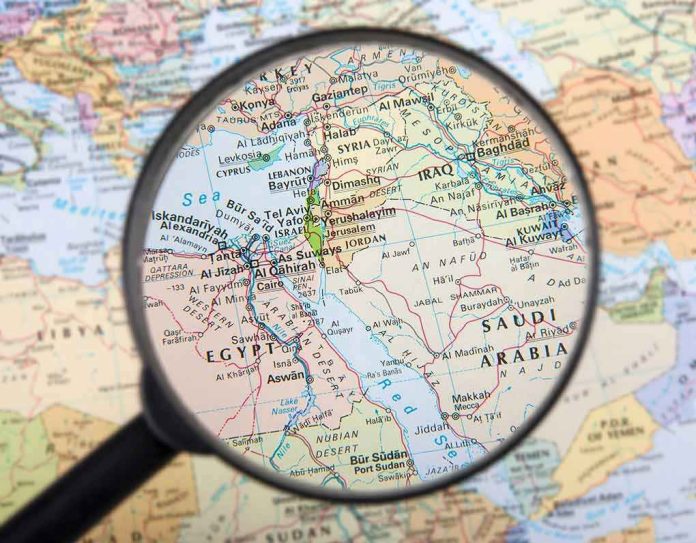
In a twist that could redefine Middle Eastern geopolitics, Saudi Arabia is eyeing a massive investment in Syria, a country still reeling from the aftermath of a regime change and chemical weapons controversy.
At a Glance
- Saudi Arabia plans to invest billions in post-Assad Syria.
- Israel continues airstrikes targeting suspected chemical sites.
- International bodies warn of contamination and evidence loss.
- New Syrian leadership pledges cooperation with global watchdogs.
Saudi Arabia’s Bold Move
Saudi Arabia, a heavyweight in the Gulf region, is reportedly gearing up to inject billions into Syria’s reconstruction efforts. This move follows the ousting of Bashar al-Assad, a significant power shift that has seen the rise of Hayat Tahrir al-Sham (HTS), a rebel group now at the helm of Syria’s governance. The Saudis are not just bringing their financial muscle; they’re also signaling a strategic play in the region’s intricate power dynamics.
With the dust barely settled after Assad’s departure to Moscow, the region is a hotbed of activity. The Saudis seem poised to counterbalance the influence of Iran and Turkey, both of whom have vested interests in Syria’s future. As HTS seeks international legitimacy, Saudi investments could be the golden ticket to stability — or at least a ticket to the reconstruction lottery.
Chemical Weapons: A Volatile Legacy
Syria’s chemical weapons saga is a dark chapter that refuses to close. Despite acceding to the Chemical Weapons Convention in 2013, allegations of undeclared stockpiles persist. The recent ousting of Assad has only intensified scrutiny. Israel, acting unilaterally, has launched airstrikes targeting suspected chemical weapon sites, raising alarms about potential contamination and the destruction of crucial evidence for war crimes investigations.
The Organisation for the Prohibition of Chemical Weapons (OPCW) and the UN have warned that these strikes could inadvertently harm civilians and hinder justice efforts. The new Syrian interim government, led by Ahmed al-Sharaa, has publicly committed to transparency and cooperation, but the path forward is fraught with challenges.
International Stakes and Regional Dynamics
As the international community grapples with Syria’s chemical weapons quandary, the stakes are high. The OPCW is gearing up to deploy teams to assess and dismantle remaining stockpiles, contingent on security conditions. Meanwhile, the UN Security Council remains divided, with some members condemning Israeli strikes as violations of sovereignty.
The region’s power players, from Israel to Turkey, are closely watching the unfolding developments. Each has its agenda, with Israel focused on preemptive strikes to deter perceived threats. The Saudis, however, are playing a longer game, investing not just money but political capital in reshaping Syria’s future.
The Road Ahead: Challenges and Opportunities
The road ahead for Syria is precarious. The potential for chemical contamination, coupled with ongoing hostilities, presents significant hurdles. Yet, there is also an unprecedented opportunity for disarmament and rebuilding. Saudi investments could catalyze reconstruction, provided security and governance stabilize.
For the new Syrian leadership, the challenge is to balance internal and external pressures while delivering on promises of cooperation and transparency. The international community’s role is crucial, not only in disarmament efforts but in ensuring justice and accountability for past atrocities. As Syria stands at this crossroads, the world watches, waiting to see if the phoenix can indeed rise from the ashes.
Sources:
Peace Research Institute Frankfurt
United Nations Security Council


